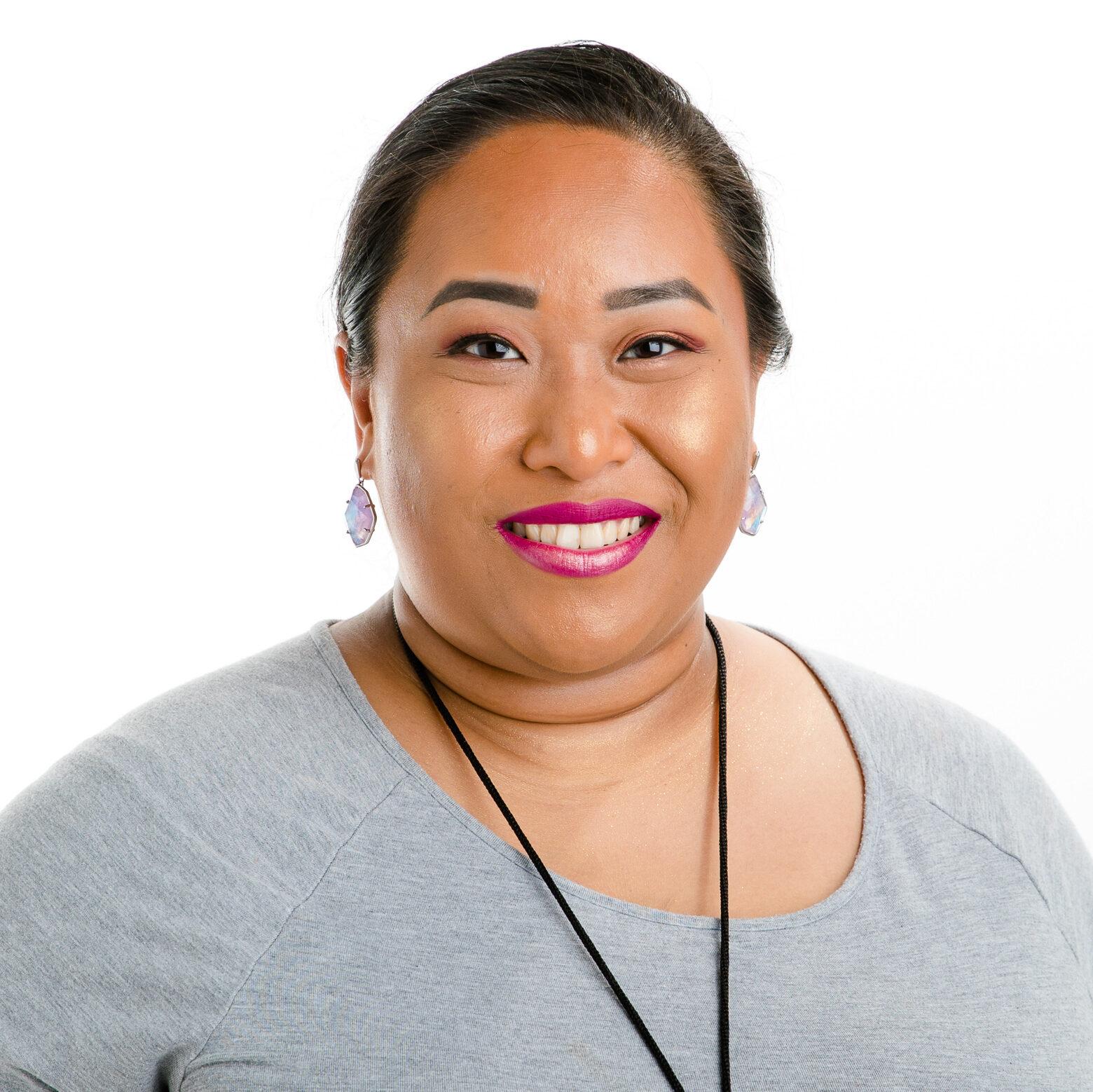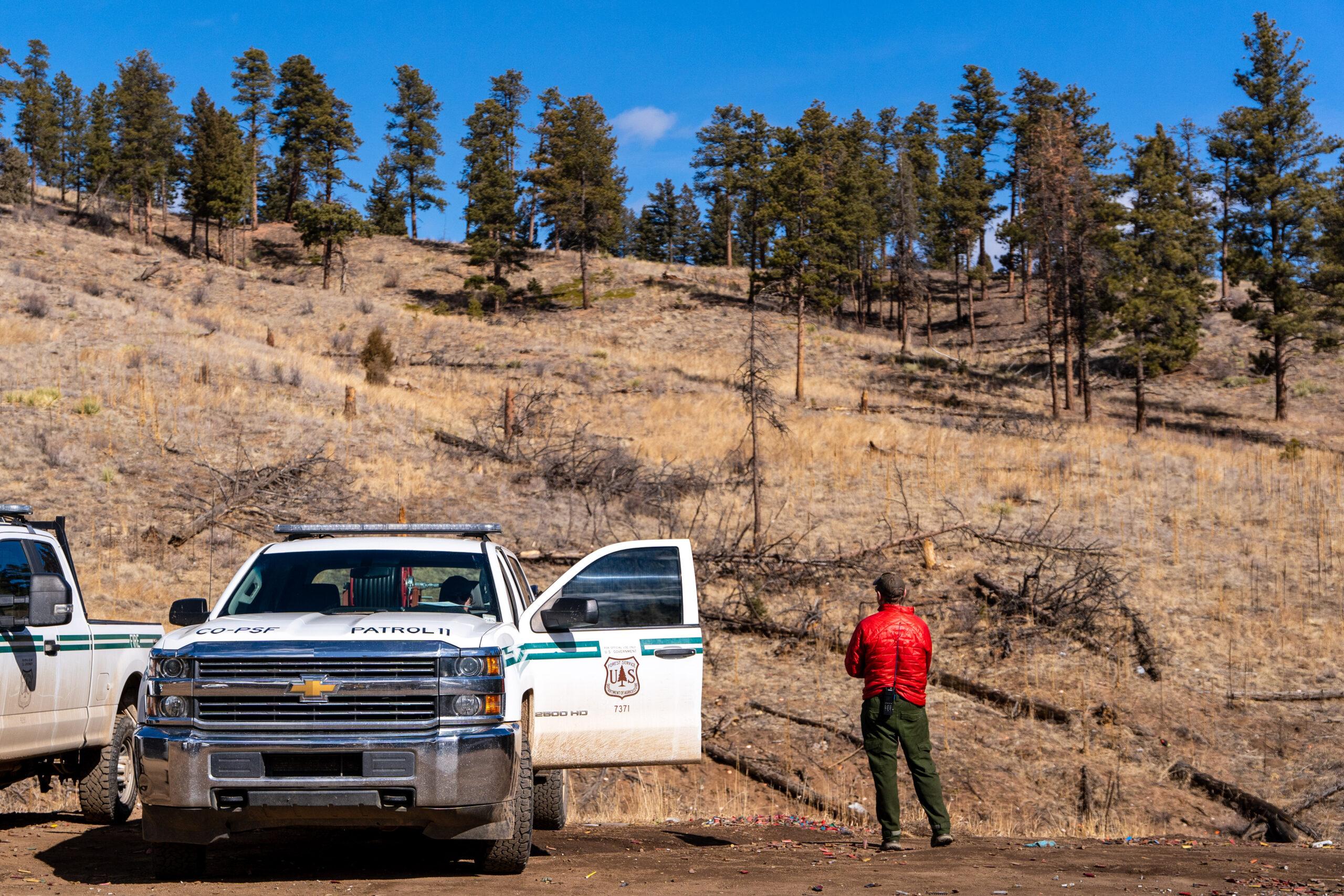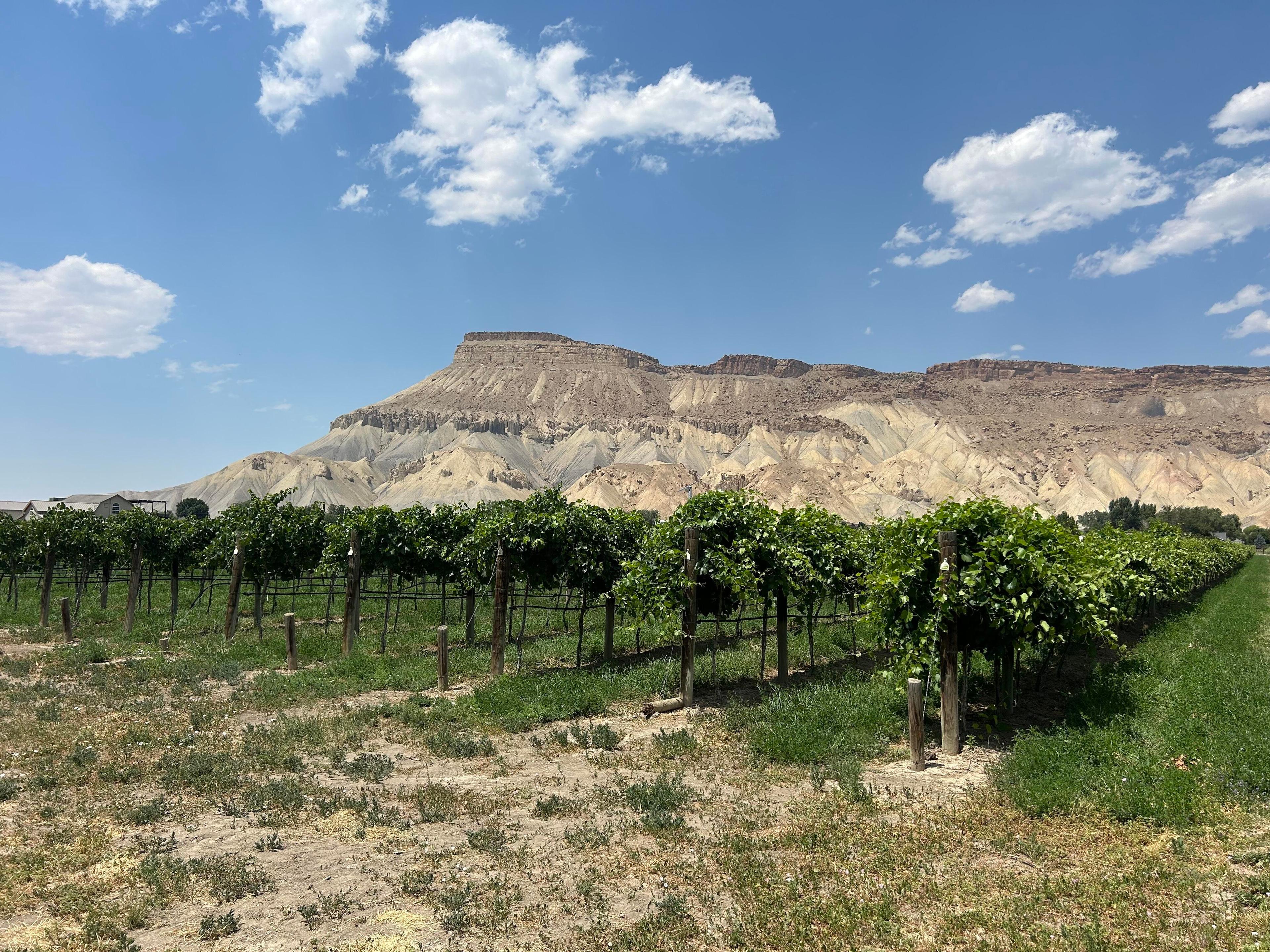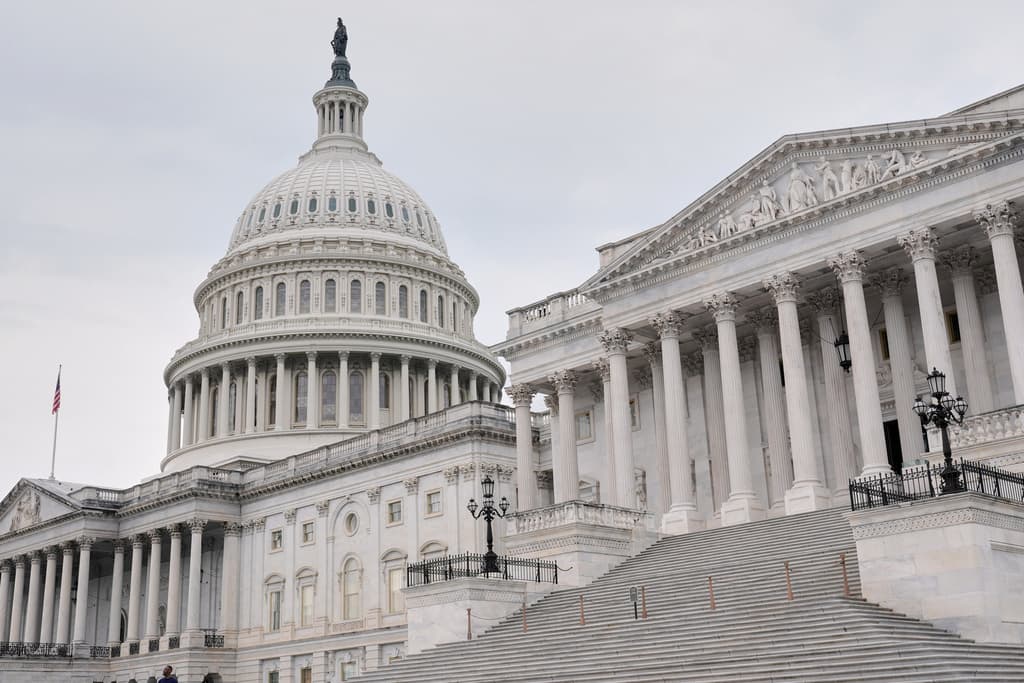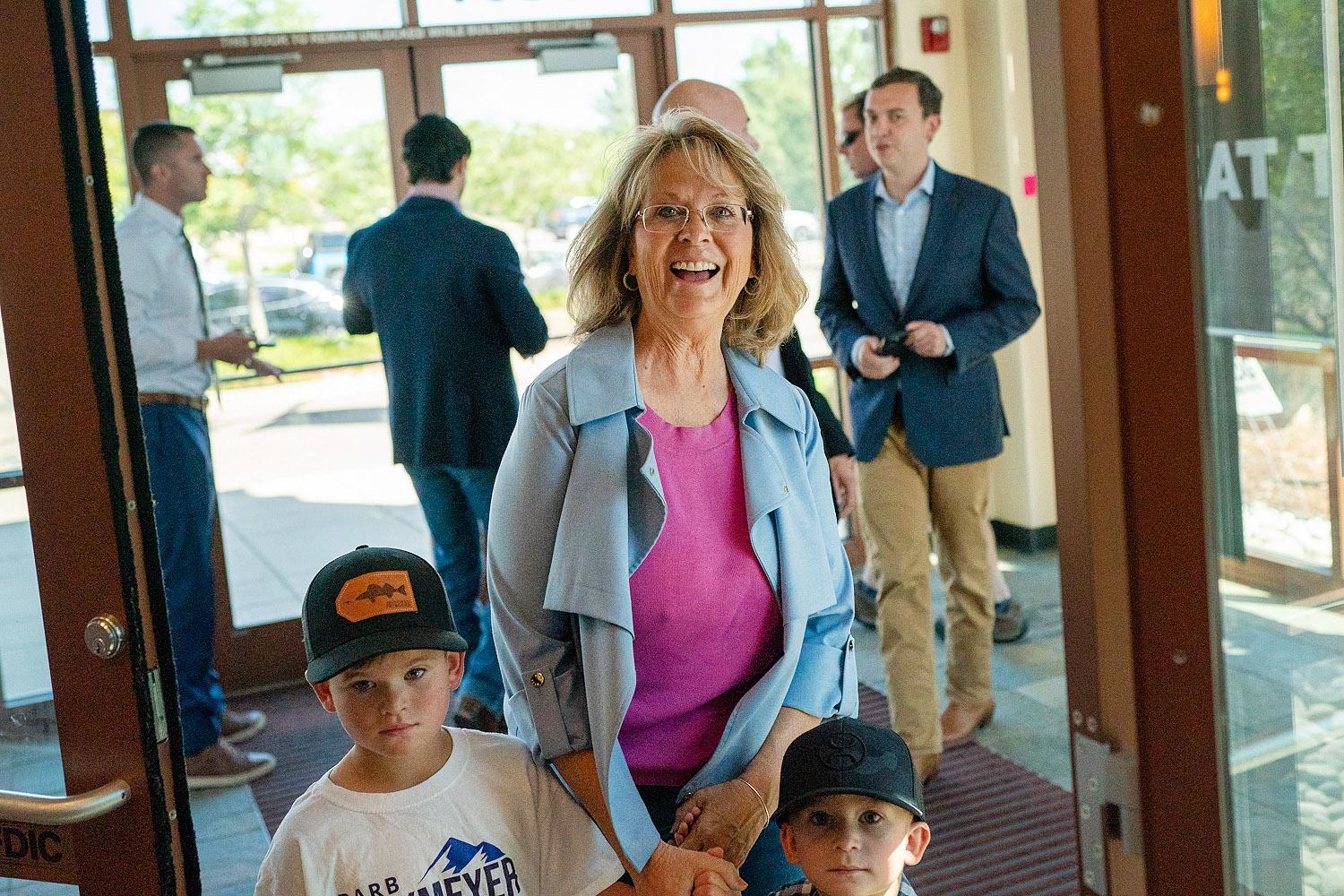
Barbara Kirkmeyer has been in local politics since 1991 when she served as a Weld County Commissioner. From there, she became a senator in Colorado’s General Assembly — and now she has her eye set on representing Colorado’s new 8th Congressional District.
The district encompasses a swath of the state that includes Weld, Adams and Larimer counties. It’s considered one of the most competitive districts in this year’s midterm elections, with a high number of unaffiliated voters and also the largest Latino population.
In an interview with Colorado Matters, Kirkmeyer said she wants to get the country back on track by tackling inflation and crime. She said she plans to reduce government spending and criticized President Joe Biden’s administration for its recent student debt forgiveness program.
She also criticized Democratic leadership about the U.S.-Mexico border, blaming lax policy on the steep increase in fentanyl overdoses and rising crime in Colorado. She said the death penalty should be a possible sentence for drug dealers if someone dies of an overdose.
Kirkmeyer also defended her position on abortion, saying she would support a federal bill that banned the procedure after 15 weeks. Her website makes no mention of her position on abortion, though she argued that in her conversations with voters, the issue does not come up.
Kirkmeyer is running against Democratic state Rep. Yadira Caraveo.
This interview has been edited for clarity and length.
Ryan Warner: Republican Barbara Kirkmeyer is running for Congress in Colorado’s newest District: District 8, which has a high number of unaffiliated voters and Latino voters. She began her political career as a County Commissioner in Weld county and is a current State Senator. Senator, tell me about the local zoning issues that got you into politics.
Barbara Kirkmeyer: It was about landfills and other fly ash sites and hazardous medical waste sites all within a five-to-10-mile radius of where I lived on a farm in Southwest Weld. I owned a dairy farm at the time, had two young children and I also owned a flower shop. All of these waste disposal facilities were looking to be sited out in my area, in the unincorporated part of Weld county.
When I contacted my County Commissioner, he basically told me it didn't matter. It didn't matter about me; It didn't matter about my community; It didn't matter about us. This is how it was just going to be. Then he told me I was just chasing windmills. And when he said that to me, it just really ticked me off. I thought that's not right: It does matter. And you're going to be really darn sorry when I catch a windmill.
Warner: Does this person know that they are the reason you entered politics?
Kirkmeyer: At the time, I'm not sure if he did. When I ran, I was young and I ran for County Commissioner and I won the seat by 400 votes. It was a tight race. I won that by going out and talking to folks and going door-to-door and listening to them and finding out what their issues were. Because, not everybody had the same issues as I had. When I became a County Commissioner, I feel like I had the opportunity to truly impact the lives in a very positive way. I mean, I led my county to zero debt, lowered property taxes and also reduced regulation.
Warner: Do you think that Congress is going to be that gratifying?
Kirkmeyer: I'm not sure, to be very honest with you. I hope so. I'm not going there to make a point. I want to go there to make a difference. I have certainly bugged the Republican leadership enough to the point where — we can't just be running to win. That's not what I'm about. Even when my grandsons asked me, "What are you doing this for?" I say, "For you."
But when I talk to [party] leadership, and I'm telling them: we can't just be running to win, we have to be able to be telling [people] how we are going to govern and how we're going to get our country back on track.
Warner: Let's talk about that: “The country back on track.” Give me a key way you think that it's on the wrong track.
Kirkmeyer: I think there are several places where we're off track. You don't have to go any farther than our economy and look at the inflation. When I'm out walking and talking to people at their doors or at festivals or in parades, the Number One issue I hear is the cost of living and how expensive it is. Did you know that in Colorado, it's $11,000 more in 2022 than it was in 2020 to pay for food and gas and shelter, your housing needs, transportation, electricity. And now even interest rates are going up yet again, 0.75 percent. So that's the main issue, and we've got to work on curbing inflation and reducing the cost of living. It's hurting everyone.
Editor’s note: While the cost of living has increased for many Americans, $11,000 is the national average and not specific to Colorado.
Warner: That is a global phenomenon right now. In other words, many countries are struggling with inflation. It is not by any means specific to Colorado or to the United States. What is a way you would bring inflation down in the face of things that are beyond your control — Hurricanes and wars and viruses?
Kirkmeyer: The government needs to stop spending. The government spends way too much. In fact, the president with his student loan debt, close to another trillion dollars.
Warner: But doesn't that help the very families you say are struggling? Doesn’t forgiving their student loan debt help them?
Kirkmeyer: Forgiving their student loan debt impacts approximately 15 to 17 percent of the people in the United States that went to college. And the 83 percent [of people] that didn't go to college are paying for it so they couldn't afford their own college. And now they're going to pay for somebody else's college. So no, that doesn't help them. We are already $90,000 in debt for every man, woman and child in the United States.
That's what I mean when I'm talking about my grandchildren. I grew up on a dairy farm. I come from a very modest background. We were poor when I was a kid. We didn't even have indoor restroom facilities. I have six siblings. My grandmother lived with us and my great-uncle lived with us, so there were 11 of us around that table. And on the farm, we were all expected to work on the farm. I mean, at five years old, I'm out feeding calves. My parents taught me early on — They didn't give me a heifer calf when I started my 4-H project when I was 9 years old; They sold me a heifer calf.
So I learned about debt, I learned about paying off your debt. I learned about work and hard work. And that from working comes opportunity. I raised seven or eight animals that I eventually sold off and I was able to pay for a large portion of my college education.
Editor’s note: According to NPR, about 45 million Americans, or 13.7 percent of the population, took out federal loans.
Warner: Let me ask you specifically about the Inflation Reduction Act. It did a whole host of things: Prescription drug price reform under Medicare; Investment in energy, security and climate protection; More money for IRS tax enforcement; Also the creation of a 15 percent minimum tax rate on large corporations. Would you have voted for that act?
Kirkmeyer: No. I would not have voted for that act. It's coming out now that it's not an inflation-reduction act. They increased the [size of the] IRS with [more] IRS agents, I wouldn't have agreed to that. And when we talk about the 15 percent increased taxes, that's on small business —
Warner: These are on large businesses, actually.
Kirkmeyer: Well, what would you consider a large business?
Warner: It's on $1 billion in profit. That's not necessarily a small business.
Kirkmeyer: It depends on which business it is. But we're still crippling businesses. And then you know what all that does? It just increases the cost of services and increases the cost of goods.
Warner: Do you think someone like a Jeff Bezos or an Elon Musk is paying their fair share?
Kirkmeyer: I don't know. I don't know what they pay. I mean, if we're looking to make sure that we're having a fair tax system, I'm with you on that. But I don't know what they pay in. So I couldn't tell you if they're paying their fair share or not. I think I pay more than my fair share.
Warner: You serve on the education committee in the Colorado Senate and have had a voice in school finance and early childhood education. While there is a lot of local control over school districts, do you see your work with education continuing if you're elected to the U.S house?
Kirkmeyer: Yeah, there is a lot of local control. And yes, I would see it continuing. To try and answer specifically: I'm not sure that I know how. But I know that it's a passion of mine. I know that as a State Senator, I was able to work with folks across the aisle, and we were able to pass legislation just this year that increased funding for special education per pupil.
It was a promise that had been made to school districts, and to the children, that we would fund it to a certain level. That was back in 2006. We never got to that level; We never kept our promise at the legislature. Even though I was not part of that legislature, I still feel like when the general assembly comes through and says, ‘we're going to put this much money towards special education,’ we should be doing that. We were able to not only get the funding increased by about $90 million more per year, but also get an inflationary factor on it.
Warner: Part of that funding increase for special education came from federal dollars.
Kirkmeyer: Yes.
Warner: You celebrated a federal infusion of money into special education, but at the same time, you're saying the federal government spends too much. Is that a contradiction?
Kirkmeyer: No, not at all. I think part of the problem that a lot of governments have is that they don't prioritize or they don't really sit down and think about, ‘what is the government supposed to be spending the taxpayer dollars on?’ As a County Commissioner, we set priorities. We understand what our role is. What is the government supposed to be funding? Because the government should be doing those things for the people that they cannot do for themselves.
To me, education is one of those things that the government should be funding. In fact, we have a constitutional requirement here to fund a public school system and provide free education. So that's why most of the funding comes from the state. And then we have local governments here and school districts that also provide funding. So, no: I don't think it's a contradiction. I think it's a clear message on what I believe is a priority of the government.
Warner: But you've lauded what it means to have an education. And you've also been very critical of loan forgiveness.
Kirkmeyer: I think that people need to be accountable for their decisions and their choices. In this case, with education. If you are choosing and you know that you're taking out loans so that you can go get a degree out of a higher education system, then I think you're responsible to pay that loan back.
As a Weld County Commissioner, we were able to have an investment that had happened a very long time ago, where we owned land underneath the hospital and that land sold off. It was about $60 million that we had and we put that into a trust for education. It was called Bright Futures. It's not a scholarship program; It's an actual grant program to individuals that are in the school system that have resided in Weld County for at least two years and have graduated from high school. They get a grant of up to $2,000 per semester to go to any four-year college, any community college, any secondary education, post-secondary training or education certified program.
So if they want to go learn to be a welder and they go to specialized training, they could use the funds for that. We thought of it as a workforce initiative. We were providing for and investing back into our community, into our citizens.
Warner: Aren't those kids making a choice to attend a higher education institution — that you say they should have to pay for. Again, I go back to what seems to me to be a contradiction. You're saying that in Weld county, it's OK for those public funds to be used for kids who choose a higher education, but not so for the federal government.
Kirkmeyer: It wasn't just for higher education. It was for any type of post-secondary training or education. And it was a tool that we were able to use because of something that came back to us. We had an investment into a county hospital, and now we still own the land, that money was coming back to us. Instead of just putting it maybe into a road or something, we invested it back into our community. I don't think it's a contradiction. I'm just saying, I think there are ways that the government can invest back into their community without raising taxes. And we didn't raise taxes.
Warner: When it comes to school athletics, you've pledged to support the goals of Nine PAC. Meaning, you wish to prevent trans athletes from competing in women's sports or using women's locker rooms. I want to note that 82 percent of trans individuals have contemplated suicide. Do you see a link between that figure and policies that single-out trans people?
Kirkmeyer: No, I don't. But to be very honest with you again, I have not necessarily done all the research on that. What I see is that an individual who's born as a biological male is now competing against females who have worked their entire life to get to the level of being in college sports. I just don't think it's fair competition. I don't think that that's what was meant by Title Nine, either. So I can support Title Nine, but I don't support biological males being able to compete in women's sports. I don't think that's fair.
Warner: But the athletes are trans women and they, too, have worked their whole lives to get to that point.
Kirkmeyer: I'm not sure that you can make that statement about everyone, but I would just say again that I just don't believe that biological males should get to compete against biological women in sports. I don't think that's fair.
Warner: I see. Let’s shift gears: The county where you've lived for 35 years is one of Colorado's most reliably conservative with many voters who oppose abortion. And yet The Washington Post, along with other outlets, reported in August that you removed any mention of abortion from your campaign website. At last check, I couldn't find any reference to the issue. What does the removal tell abortion rights opponents about your commitment to that issue?
Kirkmeyer: My commitment has never changed.
Warner: Why did your website then?
Kirkmeyer: It's a marketing tool. I was running a campaign in a primary against three other Republicans. So it's a different campaign. It's a different webpage. I mean, my web page changed from when I was a State Senator running for office, from when I was a County Commissioner running for office. Because it's specific to the office in the position that I'm running for and the campaign that I'm in.
I didn't scrub my whole webpage. I didn't scrub my Facebook page. My comments are still on my Facebook page. March for Life and the Rally for Life that was back in March of this year: My comments are still out there. I haven't changed that position. But do I look at my marketing tools and update them and revise them based on the election that I'm in, based on what I'm hearing as issues? Yes, I do.
Warner: Does that mean you're running to the center then? You had abortion up as an issue when you were running against Republicans. Now you're running against a Democrat. Is this the kind of shift-to-the-middle that we often see from candidates on both sides?
Kirkmeyer: It still is, as everyone is aware. I'm still pro-life, I have not changed that position. The issues that aren't bubbling to the top as major concerns. You only have so much time. You only have so many points that you can make with people. I mean, it's not like people are going to go in and study my whole webpage. That just doesn't happen. I mean, I'm sure you did because you're in the media and you're going to go look and see what I'm doing. But not everyone does that. Like I said, I've probably hit over 10,000 doors where I'm talking to people at their door and hearing what the issues are.
Warner: And abortion is not coming up?
Kirkmeyer: I would say maybe a handful of times. Seriously. The people who bring it up the most are politicians and the media. But what's coming up is inflation and the cost of living. I mean, we're at a 40-year high. What else is coming up is education — That was probably the third or fourth issue that came up at the top because people want choice. They want to take their kids where they believe their children are going to get the greatest education that they can. But the Number Two issue that came up [was] public safety.
Those are the issues. If you go look at my webpage, that's what I'm talking about. What else came up: Energy independence. Now, we're energy dependent, and we've lost a lot of jobs in the energy sector in Congressional District Eight. So that's what's on my webpage.
Warner: We will talk in just a moment about crime and public safety. Let's put a finer point on your stance regarding abortion rights, if we could. Would you support a federal ban on abortions after 15 weeks, which is the driving force behind Senator Lindsay Graham's proposal?
Kirkmeyer: Without speaking to a specific bill, because if I haven't seen the bill or read the bill, I'm not going to tell you that I'm specifically going to vote. I mean, I need to look. It's just so we're clear. But, would I support a ban on abortion after 15 weeks? Yes, I would.
Warner: You want that to be a federal ban? You would support a federal ban as opposed to leaving it to the states?
Kirkmeyer: Yes, I would. Because to me it's a position of saving a few babies' lives. So for me, if I can save an innocent unborn child's life or not save any at all, I'm going to go with at least saving some baby's lives. So yes, I would.
Warner: You said in a 2014 debate that you voted to ban Plan B as a County Commissioner. This is the so-called “morning after” pill. Is that still your stance?
Kirkmeyer: Yes. Because that was related to public funding. And we have a constitutional amendment in this state that we don't pay for abortions and we don't use public funding for it. So that's what that was tied to.
Editor’s note: Plan B is considered emergency contraception and not an abortive agent, as Kirkmeyer suggests here.
Warner: So you do not want to see a ban, in general, of Plan B, but you do want to make sure there's no public funding for it.
Kirkmeyer: Correct.
Warner: OK. On the subject of public safety, you've said that you would support the death penalty as a possible sentence for drug dealers when someone dies of a fentanyl overdose. What evidence do you have that it would be a deterrent?
Kirkmeyer: That the death penalty would be a deterrent? We have plenty of evidence to show that when you don't punish criminals, there is no deterrent and there's no incentive for them to stop their activity. We've had a continuous flow of fentanyl coming across our Southern border. I mean, to the point where Biden's open border policy has made every state a border state.
And our issue here in Colorado is we've had over 1100 deaths in the last year or so with regard to fentanyl overdose. We had a bill that was passed in 2019, that allowed up to four grams of possession, a.k.a. distribution of fentanyl. Our numbers skyrocketed. We're Number Two in the nation; We don't want to be number one. Fentanyl overdose is the Number One killer of people between 18 and 45 years of age. So I think there should be severe penalties.
We in this state — and I didn't vote for it, but my opponent did — voted to essentially decriminalize fentanyl by saying that it's no longer a felony after four grams, and it became a misdemeanor. Then this year we had the opportunity to listen to law enforcement that said, "You know what, legislature? You're complicit in leaving drug dealers on the street because of your laws." And we had the opportunity to fix it and we didn't do it.
Warner: Well, there was a fix. But it didn't go far enough in your opinion.
Kirkmeyer: No. And it doesn't go far enough in law enforcement's opinion either.
Warner: You mentioned Biden's open border policy. I'm not sure what that means. U.S. arrests at the Southern border have topped two million per year for the first time, so there are plenty of interceptions at the border. Keeping in mind that the 8th Congressional District is heavily agricultural, it relies on migrant labor. How would you work towards, or would you work towards, bipartisan immigration reform? And what might that look like?
Kirkmeyer: So first of all, Biden does have an open border policy.
Warner: Well, you can cross the border legally and millions of people —
Kirkmeyer: But he essentially has an open border policy.
Warner: Millions of people are being intercepted at the border. That's not an open border.
Kirkmeyer: I'm not sure if your number is correct or not about —
Warner: It is.
Kirkmeyer: Two million people being arrested. There are people that are turned back because there's the requirement that they have to be turned back. But it's still an open border policy: We still have people who are coming across the border, coming through the backyard instead of the front door. So with regard to your question about immigration, I believe we do need immigration reform. And when I talk to my friends in agriculture, they will tell you the same thing.
But it starts with securing our border. It is a national crisis because of all of the drugs that are coming across, especially fentanyl. Over 11,000 pounds of pure fentanyl has been seized at the border. We don't know how much actually came across. But we know what was seized.
Editor’s note: According to the U.S. Customs and Border Protection website, 12,300 lbs of fentanyl have been seized in 2022.
So after you secure the border, the next step is to look at the dreamers: The children that were minors that came here. I think we need to look at that process and see what we can do, because it's my understanding, and again, I would have to do some more research here, but it's just my understanding that every two years they're filling out a bunch of paperwork. I don't know for certain how that all works. I'm willing to go find out. But I don't know why that's always necessary.
I was just down at the border about three weeks ago and talking to the border patrol agents and getting the lay of the land. It's not that people are coming across from Mexico, but more like Honduras and El Salvador, Venezuela, different countries in South America that are coming across our border. The city of El Paso is where we were — When we were talking to them, one of the things that they believe would help is if we were to help business development in these countries. So [migrants] didn't need to come here for a job. That they could find a job close to home.
And then lastly, I think we need to look at immigration reform and then make sure that we have a fair but rigorous process. When people come through the front door, they can become citizens. That's what our country was built on. When I've talked to folks in the agricultural industry — because you're right, this district sits on top of about a million acres of prime irrigated farmland. We have a lot of dairies in the district and feed lots. When I talk to those agricultural producers, they're talking about how we need to look at the H-2A program and the H-2B programs.
And we've got to really look at this process. I'm committed to doing that. And I think it's one of those areas, whether you're a Republican or Democrat that we need to come together. But it starts with securing the border. It starts with building the wall.
Warner: In Colorado's 7th District, Republican U.S House candidate Erik Aadland falsely has said that the 2020 election was 'undermined by fraud.' He added that an illegitimate government is in power. Do you reject those remarks?
Kirkmeyer: I don't agree with his comments. I'm not an election denier. I believe that Joe Biden is our legitimate president. I know from being a County Commissioner, and working with our County Clerk, that it's not the Secretary of State who runs the elections in this state. It's the County Clerks. I know that we've had mail-in ballots for many years now. We didn't go through and change our rules at the last minute; The Secretary of State wasn't able to do that. And I also know that the Dominion voting machines are not hooked up to the internet like some people think.
So, I just know from my experience, and from talking to our IT director and talking about the integrity of the elections, that it was solid. I know it was in Weld County. I believe it was in the state of Colorado. So no, I'm not an election denier and I don't agree with his comments.
Warner: Much of the narrative around the 2020 election has come specifically from former President Trump. Would you vote for him if he ran again?
Kirkmeyer: I don't know who else is running, for starters. So I don't know. Did I vote for him in 2016? Yes, I did. Did I vote for him in 2020? Yes, I did. If he is our Republican nominee, yes I would probably vote for him.
Warner: Before we go, tell me one example of where you have broken from your party.
Kirkmeyer: I think the election denial stuff is one example of where I've probably not been with the base with regard to that.
Warner: Thank you so much for your time.
Kirkmeyer: Thank you.
